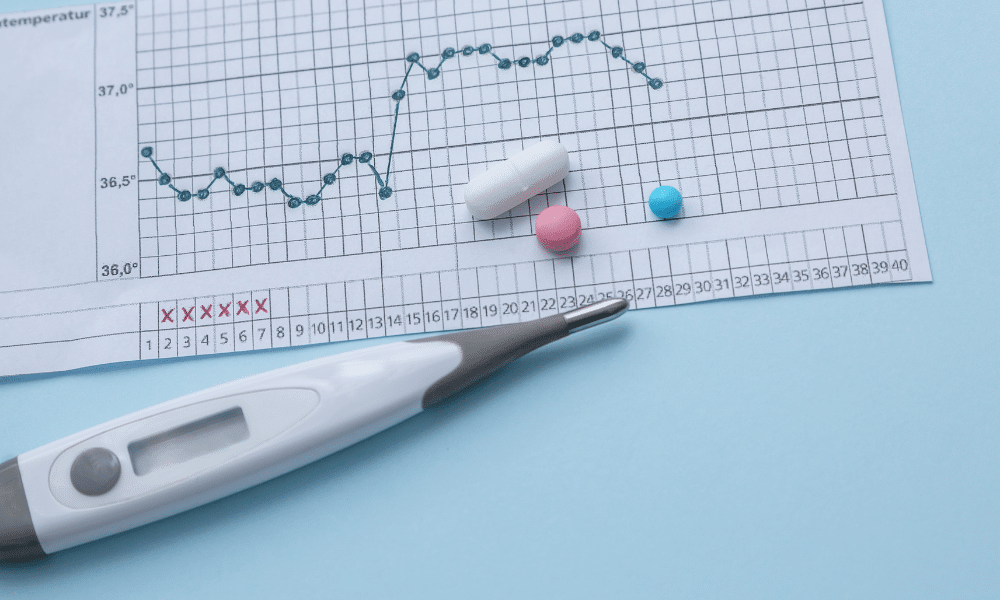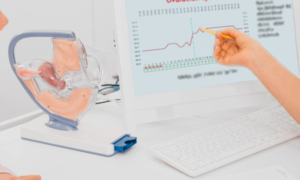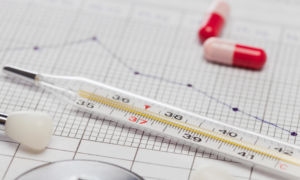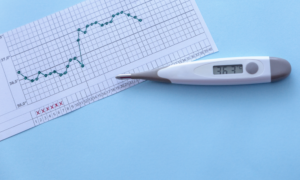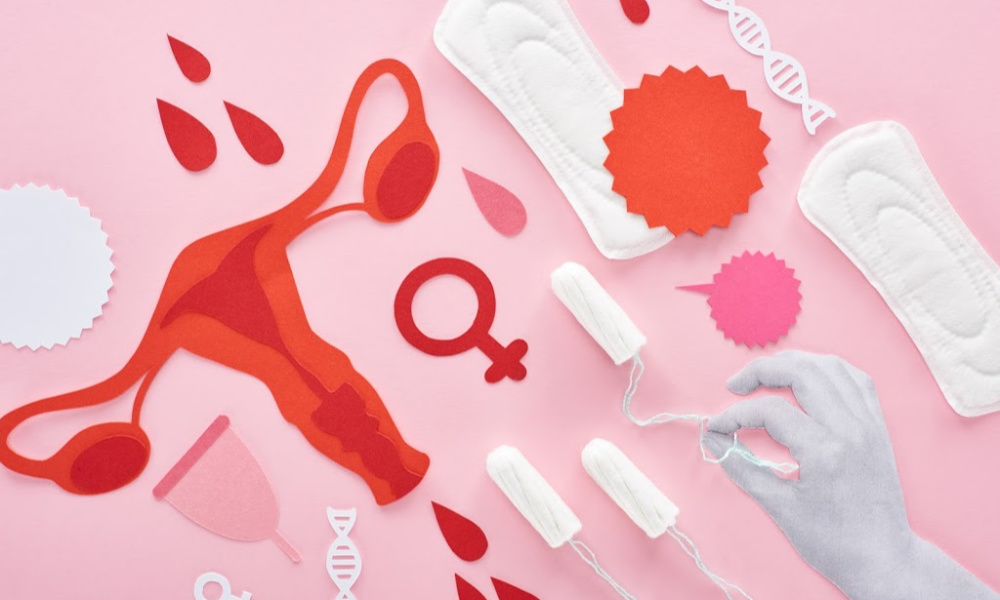Can Your BBT Drop And Still Be Pregnant
Basal body temperature (BBT) is the temperature of the body at rest, usually measured immediately after waking up in the morning. It is used as an indicator of ovulation in women because it rises slightly (about 0.4-1.0 degrees Fahrenheit or 0.2-0.6 degrees Celsius) after ovulation. This temperature rise is caused by the release of the hormone progesterone, produced by the corpus luteum (a temporary endocrine gland that forms in the ovary after ovulation) and helps maintain a pregnancy.
Pregnancy tests work by detecting the presence of the hormone human chorionic gonadotropin (hCG) in a woman‘s urine. The placenta produces hCG after a fertilized egg implants in the uterus, and its levels increase rapidly in the first few weeks of pregnancy. Therefore, measuring hCG levels in a woman’s urine is a reliable way to determine whether she is pregnant.
In summary, basal body temperature can predict ovulation and confirm pregnancy by detecting the presence of hCG in urine.
Here’s what you need to know about BBT and pregnancy:
Can you still be pregnant if your bbt drops
There is no one-size-fits-all answer to this question, as the answer may depend on the individual woman’s body and fertility. In some cases, a woman may be considered not pregnant if her basal body temperature (BBT) drops below the coverline on a fertility chart; in other cases, a woman may still be considered pregnant even if her BBT drops. Ultimately, if a woman is concerned that her BBT drop may mean she is no longer pregnant, she should consult her doctor.
Your BBT changes throughout your menstrual cycle. It’s lowest during the first few days of your period when you’re not ovulating. It starts to rise when you ovulate and continues until your next period.
If you’re trying to get pregnant, you may be charting your BBT to help you predict when you will ovulate. You may notice that your BBT dips slightly just before ovulation and then rises again.
After you ovulate, your BBT will stay elevated until your next period. If you don’t get your period, your BBT will usually stay elevated.
What Is Vaginal Contraceptive Film – VCF ? Effectiveness & Reviews
So, can a dip in your BBT mean you’re not pregnant?
It’s possible, but it needs to be more definitive. There are several reasons your BBT might dip, including:
• You’re not ovulating. If you’re not ovulating, you can’t get pregnant.
• You’re stressed. Stress can affect your hormone levels and disrupt your menstrual cycle.
• You’re sick. If you have a fever, your BBT will be higher than normal. If you’re fighting off a cold or the flu, your BBT may be lower than normal.
• You’re not getting enough sleep. Lack of sleep can also affect your hormone levels and disrupt your menstrual cycle.
• You’ve recently stopped taking birth control pills. It can take a few months for your body to adjust to the hormone change.
If you’re charting your BBT and you see a dip, it’s not necessarily a sign that you’re not pregnant. If you’re concerned, talk to your doctor. They can help you figure out what’s going on and whether or not you need to be concerned.
What causes a drop?
There are many possible causes for a drop in your basal body temperature (BBT). Some of the most common include:
1. Illness or infection. When you’re sick, your body temperature rises as part of the immune response. This can cause your BBT to drop.
2. Stress. Stress can affect your hormones and cause your BBT to drop.
3. Travel. Travel can disrupt your sleep schedule and cause your BBT to drop.
4. Menopause. As you approach menopause, your hormone levels change, and your BBT may drop.
5. Medications. Some medications, such as birth control pills, can affect your hormone levels and cause your BBT to drop.
Talk to your doctor if you’re concerned about a drop in your BBT. They can help you determine the cause and recommend treatment.
How can you tell if you’re still pregnant if your bbt drops?
If you’re charting your basal body temperature (BBT) to track your ovulation, you may be wondering if there’s still a chance you’re pregnant if your BBT suddenly drops.
What should you do if your bbt drops and you’re still pregnant?
If your basal body temperature (BBT) drops and you’re still pregnant, it could signify implantation or early pregnancy. Implantation is when the fertilized egg attaches to the lining of the uterus. It usually happens about six to 12 days after ovulation.
Early pregnancy is different for everyone. Some women have no symptoms, while others have all the classic signs, like morning sickness and fatigue. If you’re experiencing any of the following symptoms, and your BBT has dropped, you may be pregnant:
• Nausea
• Vomiting
• Fatigue
• Bloating
• Breast tenderness
• Headaches
• Constipation
• Dizziness
If you think you might be pregnant, the best thing to do is take a pregnancy test. You can buy them at most pharmacies and grocery stores. If the test is positive, make an appointment with your doctor. They can confirm the pregnancy with a blood test and ultrasound.
Is it normal for your bbt to drop during pregnancy?
If you’re charting your basal body temperature (BBT) to detect ovulation, you may wonder if there’s any cause for concern if your BBT suddenly drops. After all, a dip in BBT usually indicates that ovulation has occurred.
But what does it mean if your BBT drops during pregnancy?
It’s normal for your BBT to drop slightly during the early stages of pregnancy. This is because your body produces more progesterone, which helps maintain pregnancy.
However, if your BBT drops sharply or suddenly, it could signify something more serious, such as an ectopic pregnancy or a miscarriage. If you’re pregnant and your BBT drops, you must call your doctor immediately to chart your basal body temperature (BBT)
Frequently Asked Questions
Q: How is basal body temperature (BBT) measured?
A: BBT is typically measured using a basal body thermometer, which is a special type of thermometer that can detect small changes in temperature. It is important to measure BBT at the same time every morning, before getting out of bed or engaging in any activity. The temperature should be taken orally, vaginally or rectally for accurate measurement.
Q: How does BBT change during ovulation?
A: BBT typically rises slightly (about 0.4-1.0 degrees Fahrenheit or 0.2-0.6 degrees Celsius) after ovulation has occurred. This rise in temperature is caused by the release of the hormone progesterone, which is produced by the corpus luteum and helps to maintain a pregnancy.
Q: How does BBT change during pregnancy?
A: During pregnancy, BBT typically remains elevated due to the presence of the hormone progesterone, which is produced by the corpus luteum and the placenta. This elevation is usually maintained throughout the pregnancy.
Q: Can I use BBT to confirm pregnancy?
A: BBT can be used to confirm ovulation, but it is not a reliable method for detecting pregnancy. Pregnancy tests, which detect the presence of the hormone human chorionic gonadotropin (hCG) in a woman’s urine, are a more reliable way to confirm pregnancy.
Q: Can a drop in BBT indicate a failed conception?
A: A drop in BBT alone is not a definitive sign of failed conception. It’s important to note that basal body temperature can fluctuate for various reasons, such as stress, illness, or a poor sleep. Therefore, a single BBT measurement should not be used as the sole indicator of pregnancy or failed conception. Consult your doctor for any questions or concerns.
Q: How is BBT used as an indicator of ovulation?
A: A woman can track her BBT to predict ovulation by measuring her temperature every morning before getting out of bed. A sustained elevation in BBT can indicate that ovulation has occurred.
Q: Can BBT be used to confirm pregnancy?
A: BBT alone cannot confirm pregnancy, as it only confirms ovulation after it has occurred. Pregnancy tests, which detect the presence of the hormone human chorionic gonadotropin (hCG) in a woman’s urine, are a more reliable way to confirm pregnancy.
Q: How does BBT change during pregnancy?
A: During pregnancy, BBT typically remains elevated due to the presence of the hormone progesterone, which is produced by the corpus luteum and the placenta.
Q: What can cause a drop in BBT?
A: A drop in BBT can be caused by various factors such as ovulation problems, hormonal imbalances, or thyroid disorders.
Q: Is a single BBT measurement enough to confirm ovulation or pregnancy?
A: A single BBT measurement should not be used as the sole indicator of ovulation or pregnancy. It is recommended to track BBT over time and in conjunction with other signs of ovulation and pregnancy.
Q: Can stress or illness affect BBT?
A: Yes, stress or illness can affect BBT, as it can cause fluctuations in body temperature.
Q: How accurate is BBT as an indicator of ovulation?
A: BBT is a reliable indicator of ovulation, but it should be used in conjunction with other signs of ovulation, such as changes in cervical mucus, to confirm ovulation.
Q: Can BBT be used to predict the timing of ovulation?
A: BBT can be used to predict the timing of ovulation by tracking the temperature over time, but it is not as accurate as other methods such as ovulation predictor kits.
Q: Can BBT be used to detect pregnancy before a missed period?
A: No, BBT alone cannot detect pregnancy before a missed period, as it only confirms ovulation after it has occurred. Pregnancy tests are a more reliable way to detect pregnancy before a missed period.
Q: Can BBT be used to monitor the progress of a pregnancy?
A: No, BBT alone cannot monitor the progress of a pregnancy, as it only confirms ovulation after it has occurred. Regular prenatal check-ups and prenatal tests are needed to monitor the progress of a pregnancy.
Q: How long should BBT be tracked to confirm ovulation?
A: It is recommended to track BBT for at least one menstrual cycle to confirm ovulation.
